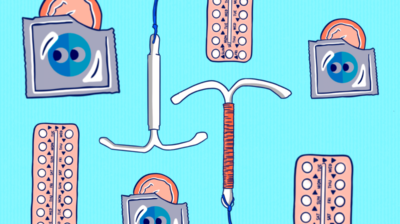What’s the difference between the combined and mini pill?
Learn more about the two types of contraceptive pill – the combined pill and the mini pill.
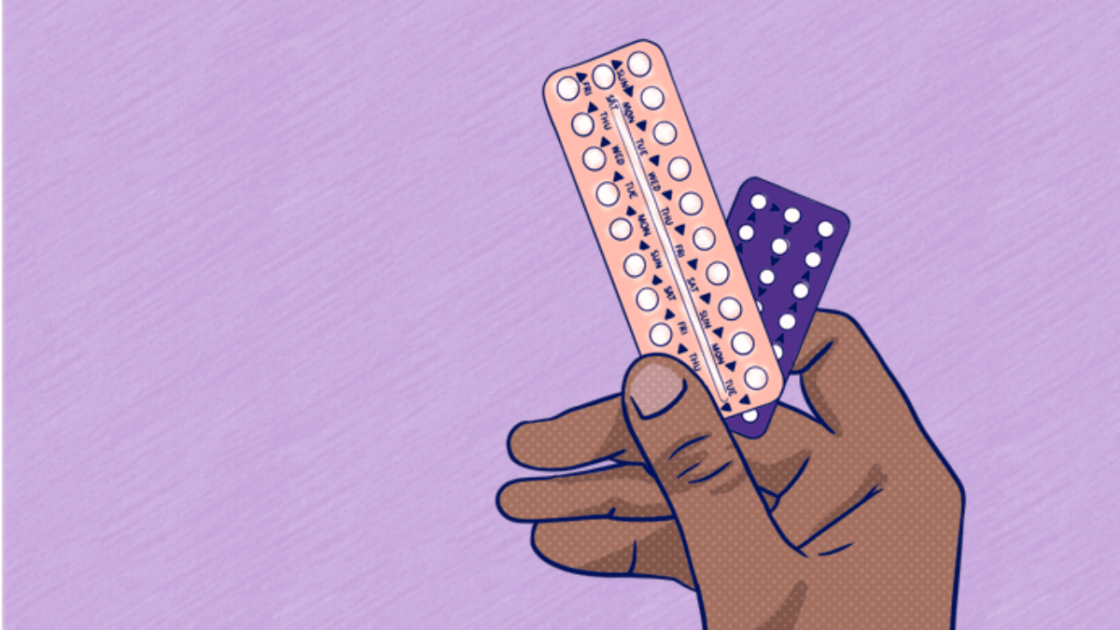
The contraceptive pill is one of the most popular hormonal contraceptives in Ireland. When used correctly, the pill can be extremely effective in preventing pregnancy. There are two types of contraceptive pill: the combined pill and the mini pill.
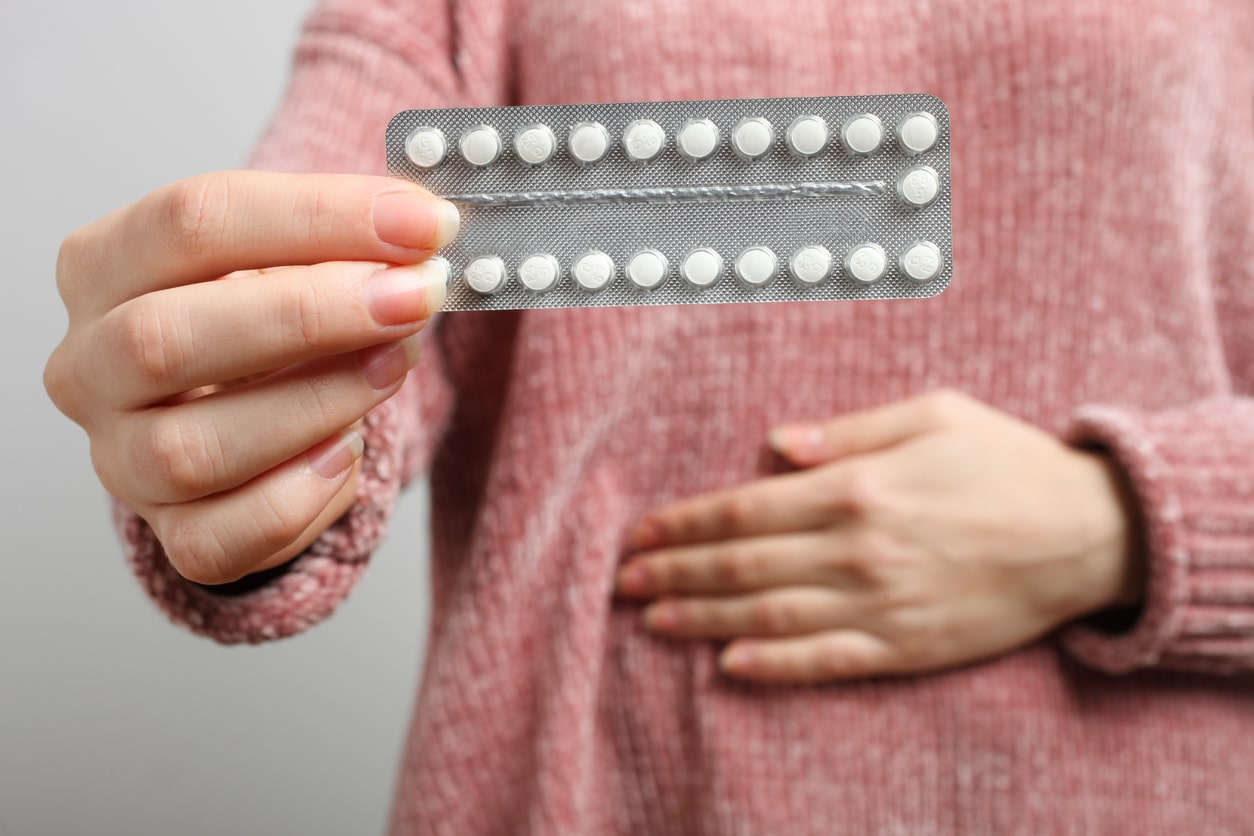
What is the difference between the combined pill and the mini pill?
The difference between these two types of pills comes down to hormones. The combined pill contains two hormones, oestrogen and progestogen, while the mini pill contains just progestogen.
How does the combined pill work?
The combined pill contains the hormones oestrogen and progestogen, which prevent pregnancy by stopping ovulation (when the ovaries release an egg each month). It also thickens the mucus in the cervix (neck of the womb) which makes it harder for sperm to get through.
At the same time, the hormones can thin the lining inside the womb, making it more difficult for a fertilised egg (when sperm meets an egg, it becomes fertilised) from implanting itself in the womb and growing.
How does the mini pill work?
The mini pill only contains the hormone progestogen. It works by preventing sperm from getting through the cervix (neck of the womb) by thickening the mucus in the cervix. At the same time, progestogen can thin the lining inside the womb, making it more difficult for a fertilised egg (when sperm meets an egg, it becomes fertilised) from implanting itself in the womb and growing.
While the “traditional” mini pill does not prevent ovulation, the desogestrel mini pill can prevent ovulation by stopping the ovaries from releasing an egg. The mini pill is a good option for people who cannot take medication containing oestrogen.
If you are thinking of going on the pill you can talk to your doctor or sexual health practitioner about which type of pill is right for you.
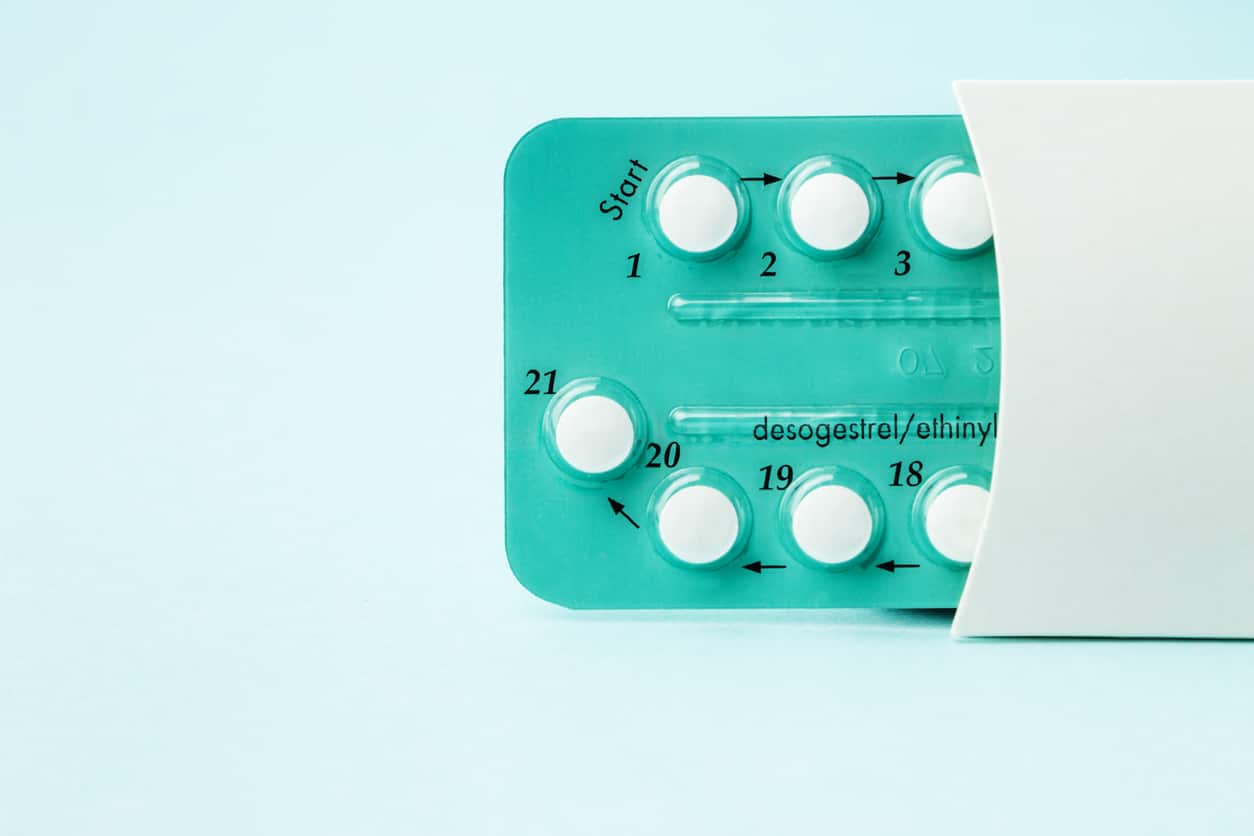
What are the advantages of going on the pill?
There are some differences between the combined pill and the mini pill when it comes to the advantages:
The combined pill:
- Can reduce the symptoms of PMS (pre-menstrual syndrome)
- Can make periods lighter and less painful
- Can regulate periods if they have been irregular
- Can help to reduce acne
- Can reduce the risk of ovarian cysts by preventing ovulation
- If you want to stop the pill and become pregnant, it is possible to become pregnant immediately
The mini pill:
- Is an option for those who can’t take oestrogen for any reason
- It can be used while breastfeeding, unlike the combined pill
- It can make periods lighter
- It can be used at any age
- It can be used if you smoke
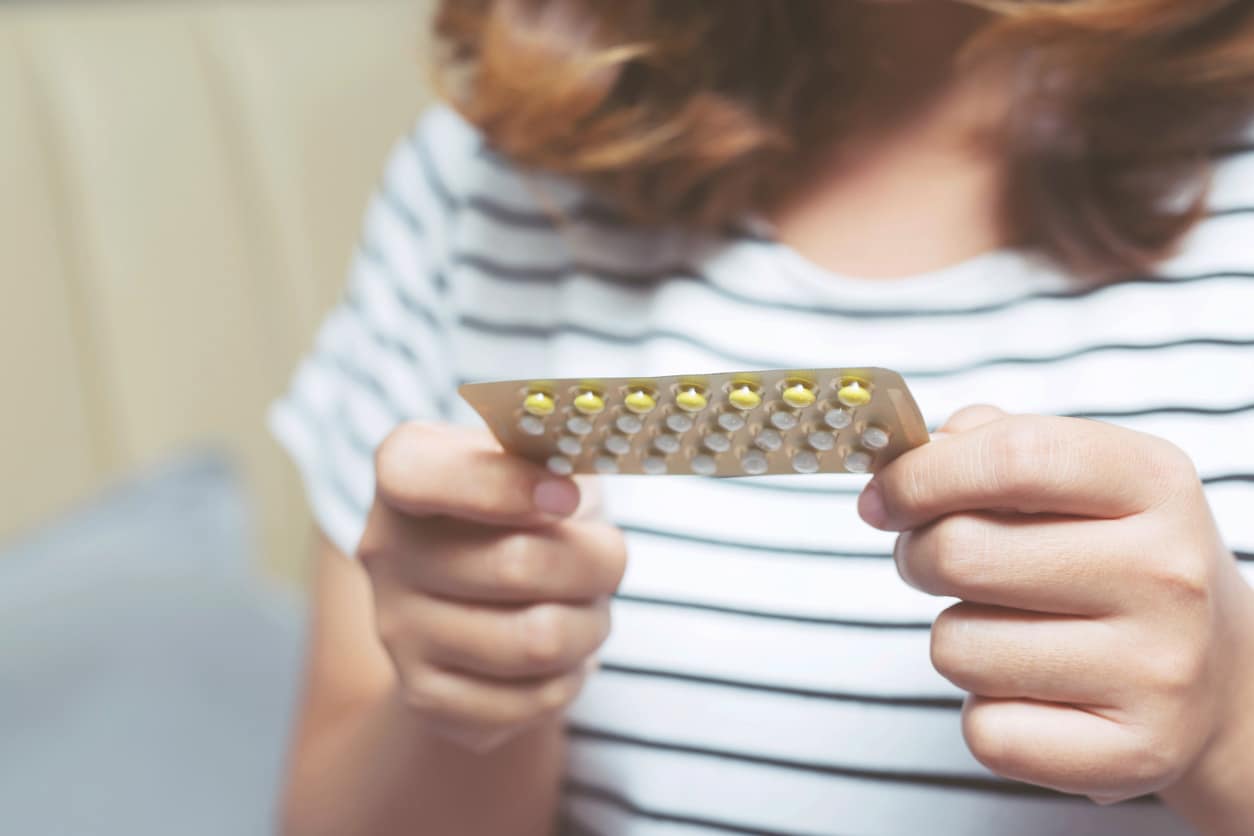
Things to consider before going on contraception
As with any new medication, it’s important to also consider any drawbacks of the medication before you start. If you have any concerns about going on the pill it is best to discuss these with your GP or sexual health practitioner.
The pill does not protect against sexually transmitted infections (STIs). It is important to always use a condom or a dental dam to reduce the risk of STIs.
The combined pill:
- It needs to be taken every day
- It could cause some side effects such as headaches, migraines, breast tenderness, acne, nausea or weight gain (if these don’t go away after the first few months, talk to your doctor)
- It can cause spotting (bleeding in between periods)
- It can increase your blood pressure
- It can increase the risk of blood clots
- It has been linked to a slight increased risk in breast cancer
The mini pill:
- The mini pill can cause irregular periods and can make them either more frequent, less frequent, or stop them altogether
- It can cause spotting (bleeding in between periods)
- It could cause some side effects such as headaches, migraines, breast tenderness, acne, nausea, mood changes, and low sex drive, although they are rare
- It can cause cysts to form on the ovary, but they are usually harmless and usually go away without treatment
The pill may not work if you are vomiting, have severe diarrhoea or are using some types of medicine. In these cases, always use another type of contraception (like condoms) as well. Consult your doctor for more information.
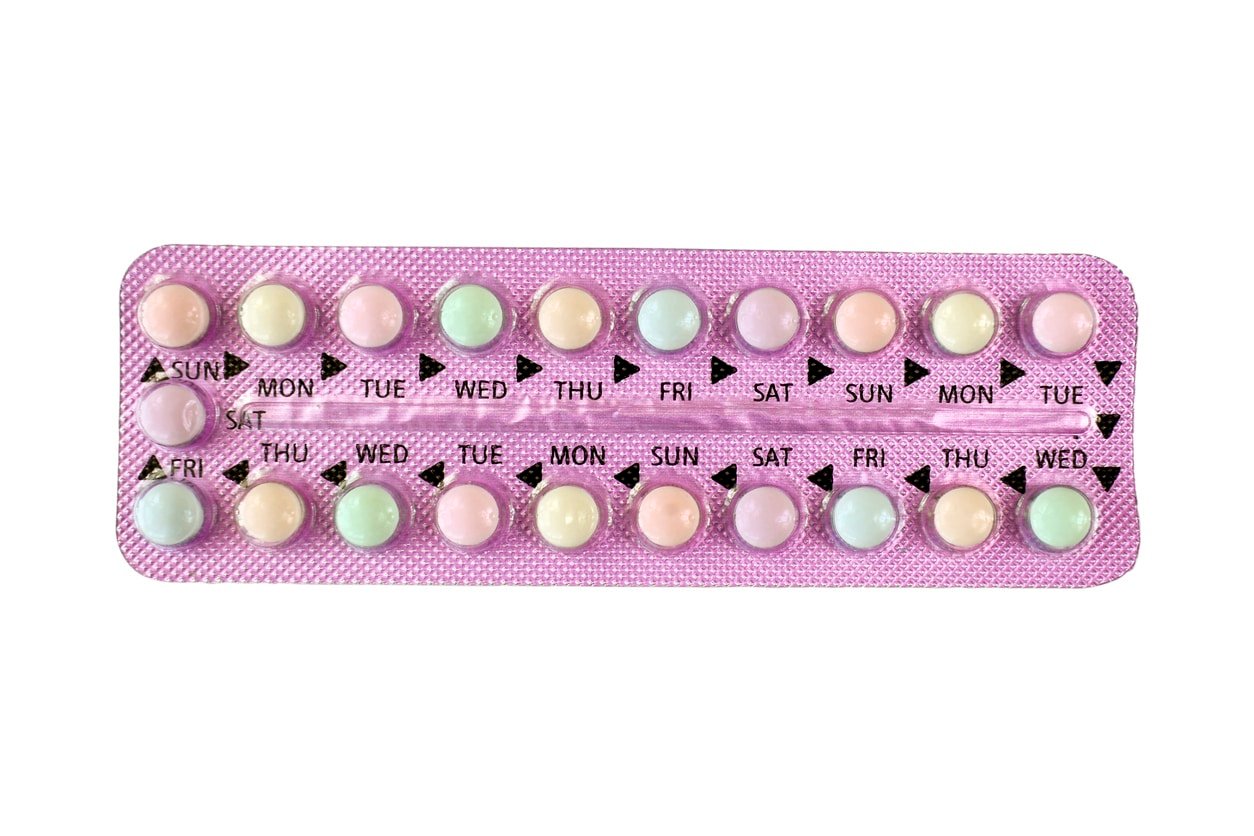
How to take the combined pill
You start the pill on the first day of your period and take one pill every day. If you start the pill on the first day of your period, then you’re protected against pregnancy from the first day of your period.
You take the combined pill for 21 days of the month. Many people who take the pill will take a 7 day break in between packs, during which time they will have light ‘withdrawal bleeding’. New guidelines suggest this 7 day break is not necessary, and people can choose to take no break. Talk to your doctor about your options when you get the prescription.
What should I do if I forget to take my combined pill?
Try to remember to take the pill at the same time every day. If you forget to take the pill at your usual time, take it as soon as you remember, even if it means taking two pills in one day.
If it has been more than 48 hours since you forgot to take it, or if you have missed two or more pills, an extra form of contraception like a condom may be needed for the next seven days. If you had unprotected sex during this time or in the previous seven days, then you may need emergency contraception.
Emergency contraception may interfere with the pill, so speak to your pharmacist or doctor about the pill you’re currently taking and how this could be affected by the emergency contraception.
If there are more than seven pills in the pack after the missed pill, then continue the pack as normal and take your seven-day break on schedule. If there are less than seven pills in the pack after the missed pill, when you finish the pack start a new one straight away, skipping your seven-day break. If you are unsure of what to do, seek advice from your pharmacist or doctor.
How to take the mini pill
You usually start taking the mini pill on the first day of your period. You are protected against pregnancy from the first day of taking the pill.
You take the mini pill daily for 28 days per packet. There is no break on the mini pill – you start a new packet the day after finishing a packet.
What should I do if I forget to take my mini pill?
It’s best to take mini pill at the around same time every day. With the “traditional” mini pill, there is a 3-hour window in which you must take the pill each day. With the new Desogestrel mini pill, there is a 12-hour window. Ask your doctor which pill you are on and how big the window is.
A back-up form of contraception like a condom may be needed to prevent pregnancy if you are outside the 3 or 12 hour window, and you may need emergency contraception if you had unprotected sex and there were two days that you missed your pill.
Emergency contraception may interfere with the pill, so speak to your pharmacist or doctor about the pill you’re currently taking and how this could be affected by the emergency contraception.
If you forget to take your pill but you are within the timeframe (3 or 12 hours), then take the pill as soon as you remember. Take the next pill at the usual time. If you are outside of this timeframe, you can still take the pill when you remember, even if it means taking two pills in one day. Take the next pill at the usual time. If you are unsure of what to do, seek advice from your pharmacist or doctor.
Protecting your sexual health when on contraception
If you chose to take the pill, this will only help prevent pregnancy, but you will still need to protect yourself from STIs and HIV. There are many great options to help protect your sexual health, but none of them are 100% effective. Even if you use condoms every time you have penetrative sex, you are still at risk of getting genital warts and herpes, as these can be passed through skin-to-skin contact. Going for an STI check or taking a home STI testing kit with a partner before having sex, can be a great way of protecting yourself and those you have sex with against STIs and HIV. However, not all STI checks check for all STIs, so it is important to speak to your healthcare provider and ask them what are being tested for as part of your screening.
Discussing with your sexual partners the type of contraception or protection options available to you, and agreeing on a type that works for everyone involved can help to reduce the risk of pregnancy, STIs and HIV. Looking out for sores or symptoms on a partner’s genitals before having sex with them, can help to identify STIs that they may not be aware of. If you do see any signs that someone may have an STI, do not have sex with them until you know for certain it is safe to do so. Asking someone about their sexual health history is the responsible thing to do before having sex, and it should not be taken as an insult if someone asks you about yours.
Remember: The age of sexual consent in Ireland is 17. If you’re over 16, you can consent to medical treatment including any treatment or tests needed.
Feeling overwhelmed and want to talk to someone?
- Get anonymous support 24/7 with our text message support service
- Connect with a trained volunteer who will listen to you, and help you to move forward feeling better
- Whatsapp us now or free-text SPUNOUT to 50808 to begin.
- Find out more about our text message support service
If you are a customer of the 48 or An Post network or cannot get through using the ‘50808’ short code please text HELLO to 086 1800 280 (standard message rates may apply). Some smaller networks do not support short codes like ‘50808’.
